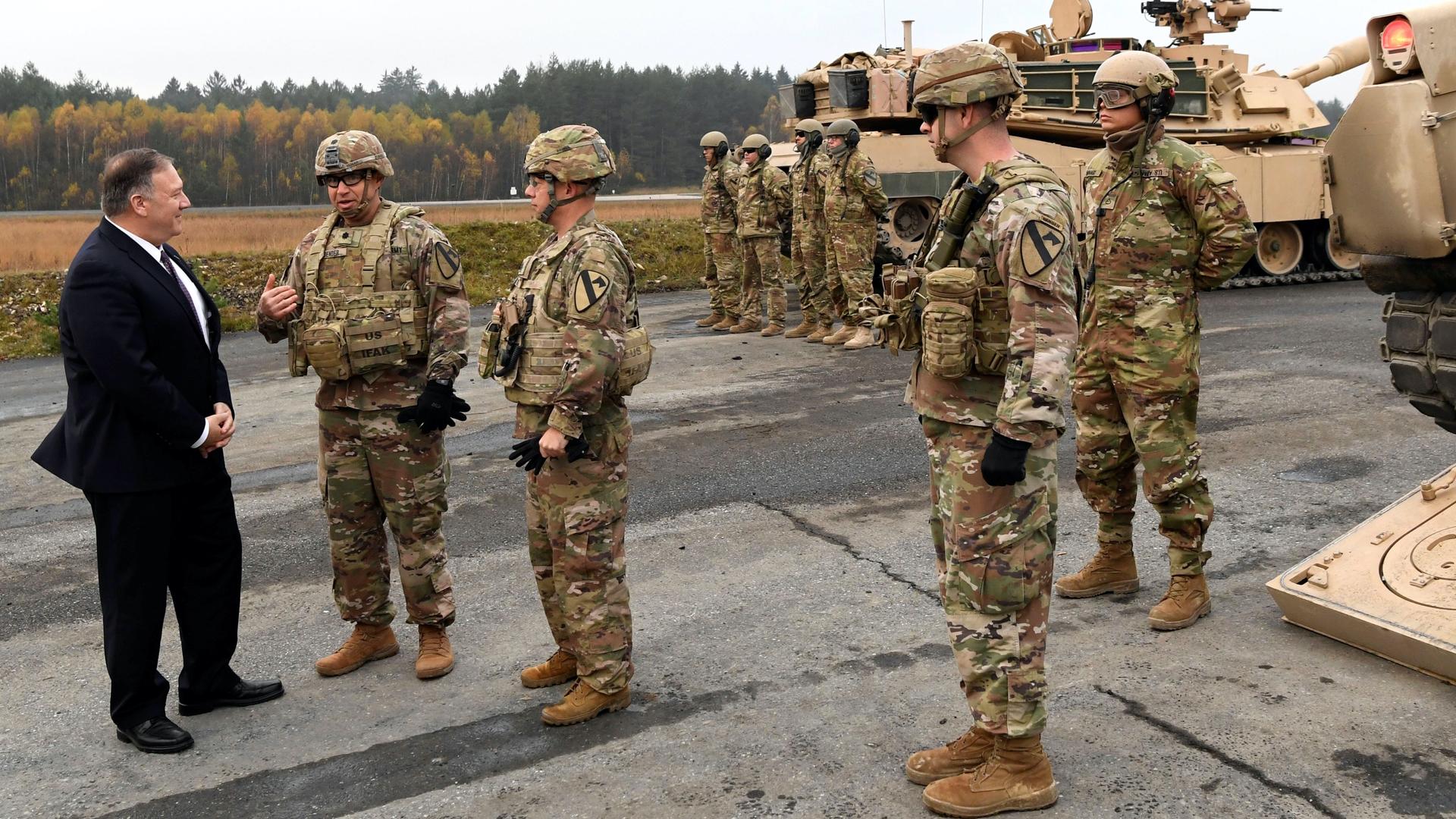Retired US generals warn against calling the US election too early
US Secretary of State Mike Pompeo speaks with US soldiers during his visit at American military installations in the German communities of Grafenwoehr and Vilseck, Germany, Nov. 7, 2019.
As Nov. 3 approaches, calls by President Donald Trump to declare a winner on election night have raised fears within the biggest, oldest group of mail-in voters: members of the military.
A new, nonpartisan group of retired US generals and veterans has come forward to say that declaring a winner too early could disenfranchise the 172,000 active-duty service members abroad and their families. They are calling their effort Count Every Hero.
“These are the very people who are putting your lives on the line to make sure every American has the right to vote. … This is what our forefathers fought for, and many of them died for. And that’s the real point of this whole effort.”
“These are the very people who are putting your lives on the line to make sure every American has the right to vote,” said one of the members, retired four-star Army General Wesley Clark. “This is what our forefathers fought for, and many of them died for. And that’s the real point of this whole effort.”
Unlike Trump, the group is not worried about absentee or mail-in ballot fraud. “
I’ve been voting absentee most of my life,” said retired Navy General Steve Abbott, co-chair of Count Every Hero, “and my evaluation of the performance of the absentee and mail-in balloting in this country is that it works remarkably well.”
But the US Postal Service also works particularly slowly for military members. A report to Congress about the 2018 election found that most military ballots received by election officials were counted, but about 6% were rejected — often because they were received after the deadline.
That’s in part because military members have to navigate a complex web of federal and state laws in order to vote, said David Becker, executive director of the nonpartisan, nonprofit Center for Election Innovation and Research in DC.
Many service members are stationed in far-flung locations, and most send their votes in by physical mail. Becker said it can take as long as 36 days for some soldiers to request a ballot, get one, send it back, and have it received by a state.
“There is no such thing as election night in the United States. … Anyone who insists that we set an artificial cutoff of midnight on election night is essentially disenfranchising hundreds of thousands of military voters overseas.”
“This is exactly why ‘election night’ doesn’t exist,” he said. “There is no such thing as election night in the United States.”
Becker said federal law requires states to give military voters a grace period to get ballots in after Election Day. So, results are always partial on election night. Military ballots could decide the election, depending on how many votes separate candidates.
“Anyone who insists that we set an artificial cutoff of midnight on election night is essentially disenfranchising hundreds of thousands of military voters overseas,” Becker said.
So, veterans need to speak out now, to say no winner should be declared until all military ballots are counted, said Navy veteran Todd Connor. He lives in the Chicago area, where he helps other veterans start businesses.
“It’s important now because I think we’re hearing national leaders, the president in particular, kinda undermine the election process and sort of cast doubt on the integrity of the process,” he said. “There’s a fear that [the president] will rush to judgment and call the election on election night and that we wouldn’t in the process allow military service members votes to be counted.”
If that happens, Connor and other members of Count Every Hero say that the people who protect the US democracy will be denied the right to fully participate in it.
